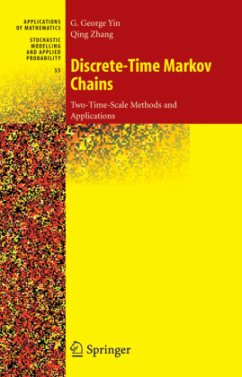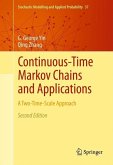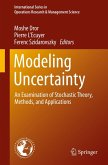This book focuses on two-time-scale Markov chains in discrete time. Our motivation stems from existing and emerging applications in optimization and control of complex systems in manufacturing, wireless communication, and ?nancial engineering. Much of our e?ort in this book is devoted to designing system models arising from various applications, analyzing them via analytic and probabilistic techniques, and developing feasible compu- tionalschemes. Ourmainconcernistoreducetheinherentsystemcompl- ity. Although each of the applications has its own distinct characteristics, all of them are closely related through the modeling of uncertainty due to jump or switching random processes. Oneofthesalientfeaturesofthisbookistheuseofmulti-timescalesin Markovprocessesandtheirapplications. Intuitively,notallpartsorcom- nents of a large-scale system evolve at the same rate. Some of them change rapidly and others vary slowly. The di?erent rates of variations allow us to reduce complexity via decomposition and aggregation. It would be ideal if we could divide a large system into its smallest irreducible subsystems completely separable from one another and treat each subsystem indep- dently. However, this is often infeasible in reality due to various physical constraints and other considerations. Thus, we have to deal with situations in which the systems are only nearly decomposable in the sense that there are weak links among the irreducible subsystems, which dictate the oc- sional regime changes of the system. An e?ective way to treat such near decomposability is time-scale separation. That is, we set up the systems as if there were two time scales, fast vs. slow. xii Preface Followingthetime-scaleseparation,weusesingularperturbationmeth- ology to treat the underlying systems.
From the reviews: "Discrete-time Markov chains are the basic building blocks for understanding random dynamic phenomena, in preparation for more complex situations. ... the book is a research monograph based largely on the author's own work. ... The book does ... fill an important niche in the literature on singularly perturbed Markov chains. ... the book will be useful to applied probabilities and engineers who deal with such systems. Other than this, the book's primary audience is other researchers in singulary perturbed Markov chains." (IEEE Control Systems Magazine, December, 2005)








